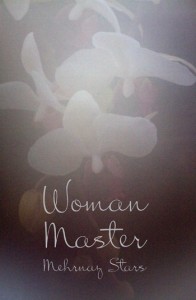 Published by Cutting Edge Press 28 February 2013
Published by Cutting Edge Press 28 February 2013
320pp, paperback, £9.99
Reviewed by Zoë Fairbairns
Before you start reading Woman Master, I recommend that you equip yourself with a large sheet of paper on which to draw a complex family tree. Or perhaps there is an app that will do it for you. You certainly need something to help you keep track of who everybody is.
A family saga set in Iran in the years since the 1930s, Woman Master races at break-neck speed through four generations. After an engaging beginning, in which a young woman named Pari defies her father to marry the man of her choice, even though the man in question is already married to someone else, things start to get complicated. Babies are born and either die or thrive. Wives are supplanted and/ or supplemented by new wives. Distant cousins appear, with families of their own. Multiple characters, many of them only superficially drawn, appear and disappear with bewildering speed. Equally disorientating are the frequent changes of point of view. Who is everybody? Whose story is this? It is often difficult to tell, or remember.
The eponymous Pari, though, is unforgettable: a matriarch with no children of her own, an impoverished widow, the sort of person who might once have been referred to in the UK as a surplus woman. Pari has little formal education but lots of common sense, charm and know-how. She spends much of her time being shunted round a huge extended family of polygamous marriages, managing discordant households, family businesses and even entire villages. Understandably stressed, she smokes opium and tries to stop, while she becomes quasi-adoptive parent to growing girls whose mothers and fathers have priorities other than day-to-day childcare. When Pari finally becomes too old to care and needs a bit of care herself, how do her former charges repay her? By abandoning her in a four-bedded room in an old people’s home, that’s how.
The jacket blurb promises to show that ‘age-old cultural traditions have much to offer the Iran of today.’ One such tradition, you discover, is that if a woman is raped by her boyfriend, she must marry him, and, if she does so, love and happiness will follow. The grimness of much of this story is counterbalanced with tales of personal courage and true love, the emancipation of (some) women, exquisite descriptions of mosques and the religious experiences undergone therein, and lots of good cooking.
